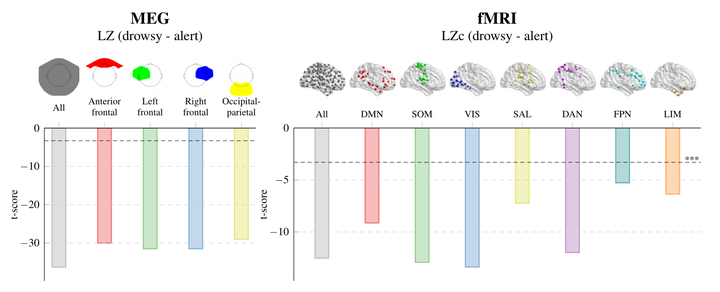Fluctuations in Neural Complexity During Wakefulness Relate To Conscious Level and Cognition

Abstract
There has been considerable recent progress in measuring conscious level using neural complexity measures. For instance, such measures can reliably distinguish healthy awake from asleep subjects and vegetative state patients. However, this line of research has never explored the dynamics of conscious level during normal wakefulness. Being able to capture meaningful differences in conscious level during wakefulness may provide a vital new insight into the nature of consciousness, by demonstrating what biological, behavioural and cognitive factors relate to such differences. Here we take advantage of a large MEG and fMRI dataset of healthy adults, to examine within-subject conscious level fluctuations during resting state and tasks, by using a range of complexity measures. We first establish the validity of this approach in both neuroimaging domains by relating neural complexity measures to pre-existing techniques for capturing transitions of consciousness from full wakefulness into drowsiness and the earliest stages of sleep, finding decreased complexity as participants become increasingly drowsy. We further demonstrate that neural complexity measures in both MEG and fMRI change both within and between tasks, and relate to performance on an executive task, with higher complexity associated with better performance and faster reaction times. This approach provides a powerful new route to further explore the cognitive and neural underpinnings of consciousness.